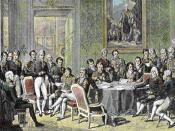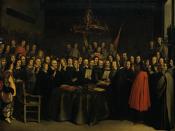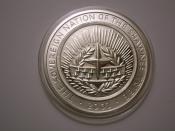How does the concept of sovereignty work differently in different concepts? Martin Weber described state sovereignty as ?contestable because the boundaries of the communities it involves are fluid, permeable and unstable.? Changing with the ?fluid? states it is applied to sovereignty is clearly a developing term which can be viewed in a variety of different contexts. Seeing sovereign power through the celestial empires of Rome and China, this concept of ?supreme authority? is constantly historically developing from resting on the ecclesiastical and king through to the state. In 1648 the Westphalia treaties not only shifted sovereign power from the king to state, but also developed the concept of independent sovereign power into that as part of a system of nation states. Similarly the French Revolution highlighted the transformation of sovereign power into the hands of the people themselves. With the rise of globalisation across the modern period, economic internationalisation through trans national corporations, showed sovereign power now viewed against the rise of economic, political and social internationalisation.
With states losing economic, political and social independence, sovereignty of independent states has not been lost but has merely secured and adapted in light of a changing political environment. Can sovereignty be applied differently in different concepts simply because it applies to states within a historical time which in themselves are developing? Sovereignty is described as absolute and unrestrained power. In the early medieval and Roman periods, this power was exerted through a single global political system. Unaware of each other?s existence the celestial empires of China and Rome saw sovereignty under an emperor who represented the highest world order directly under heaven. These empires saw themselves not as nation states but as civilisations, where sovereign power was not only political and legal but celestial and cosmic. The Chinese world order was both...


